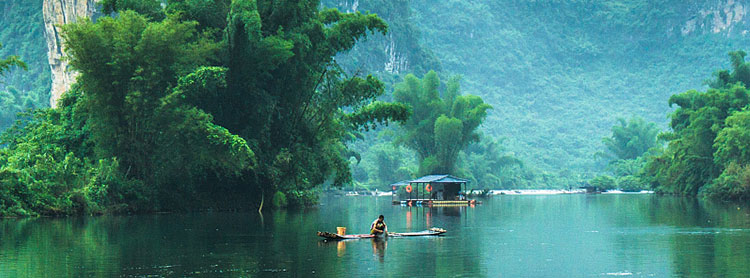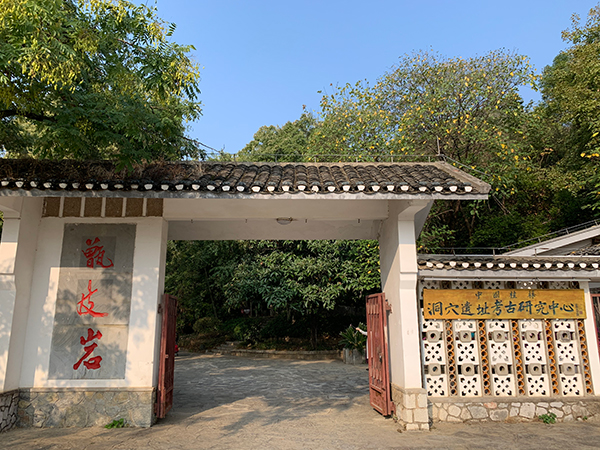
 Guilin
Guilin

Zengpiyan site, an early Neolithic archaeological site in Guilin. [Photo by Shi Ruipeng/China Daily]
Zengpiyan National Archaeological Site Park
甑皮岩国家考古遗址公园
Address: Xiangshandistrict, Guilin city, Guangxi Zhuang autonomous region
Hours: 9 am-5 pm
Museum Closed Mondays
General admission: 13 yuan ($2.01)
Tel: (+86-773)3655181
The Zengpiyan site is a Neolithic archaeological cave site dating back 7,000 to 12,000 years. Located at the southwestern foot of Dushan Mountain in Guilin, it is one of the most famous tourist destinations in South China.
This prehistoric site consists of a main cave, a lower cave and a water cave, covering a total area of about 300 square meters. The site was discovered in 1965, and two archaeological excavations in 1973 and 2001 yielded tens of thousands of stone tools, bone ware, clam ware, horn ware, tooth ware and pottery shards.
There have also been several representative finds at the Zengpiyan site.The site has unearthed many early crouching burials with bent limbs (a funerary tradition peculiar to southern China and Southeast Asia), well preserved bones of ancient people, and the most primitive pottery and stone tool processing workshop ever discovered in China.
Through the above archaeological excavations and research, Zengpiyan site is regarded as one of the most important scales and databases of prehistoric archaeology in South China and Southeast Asia. It is alsoone of the important origins of Chinese pottery technology, and one of the ancient ancestral settlements of modern South Chinese and Southeast Asians.
The Zengpiyan National Archaeological Site Park covers an area of 9.5 hectares. It is based around the original Zengpiyan cave site and the Guilin Zengpiyan Ruins Museum. The park includes an entrance service area, a site protection area, a cultural relics exhibition area and a simu-lated archaeological park, a total of four functional areas.